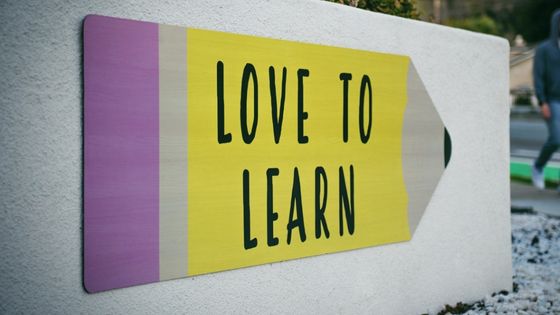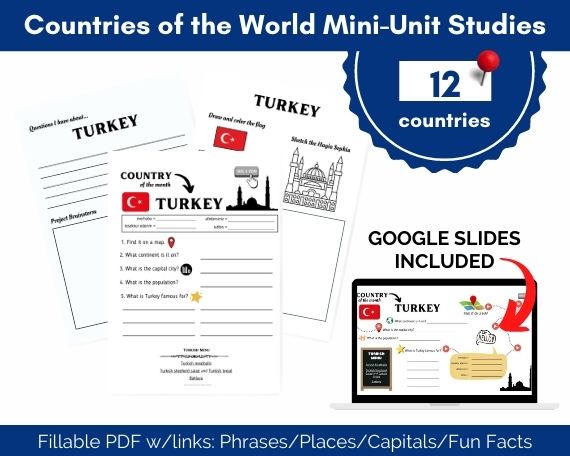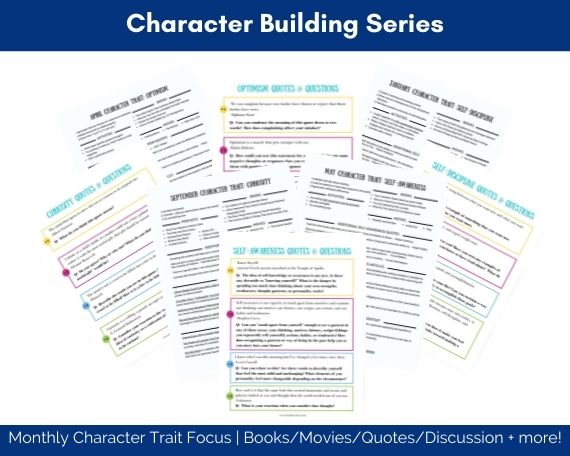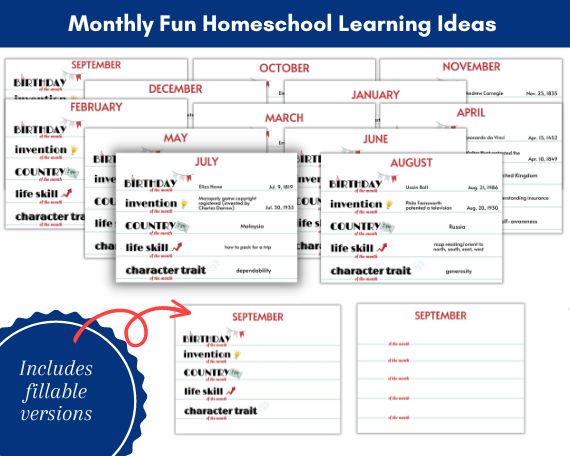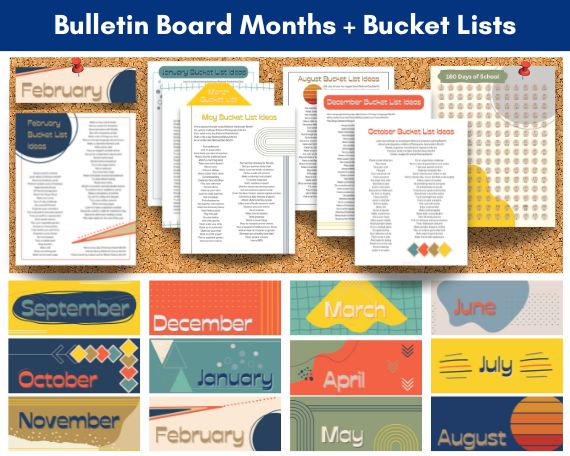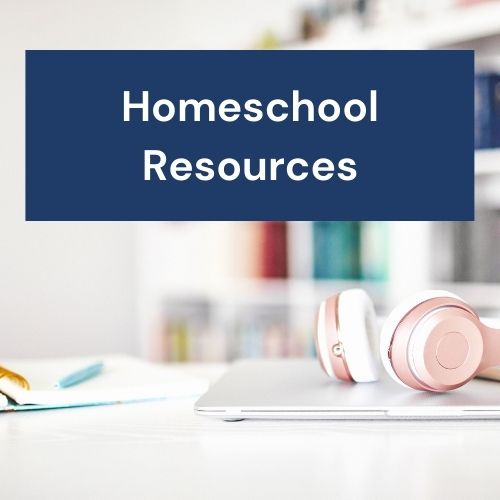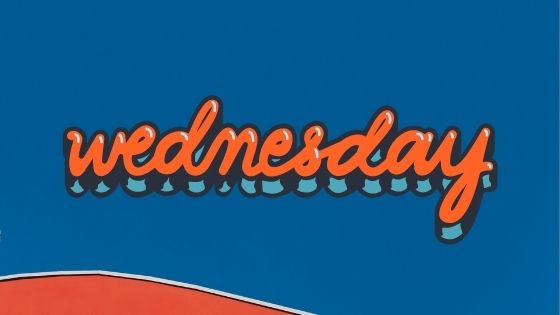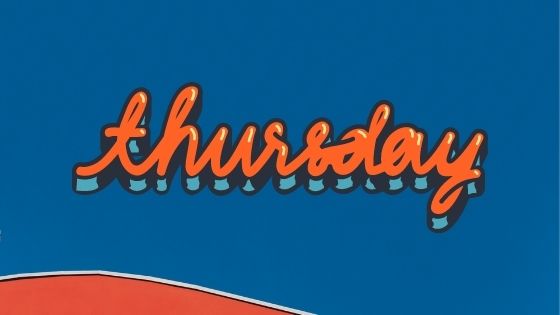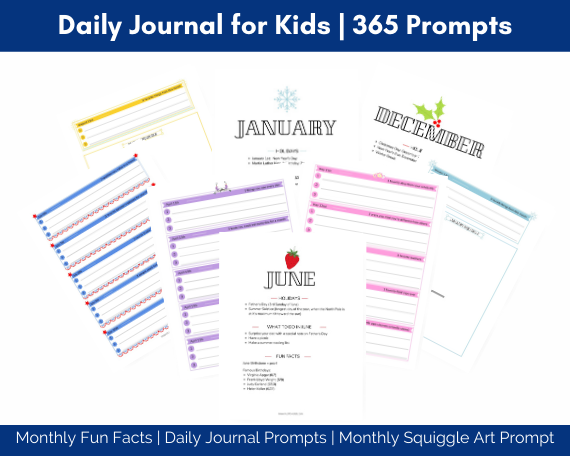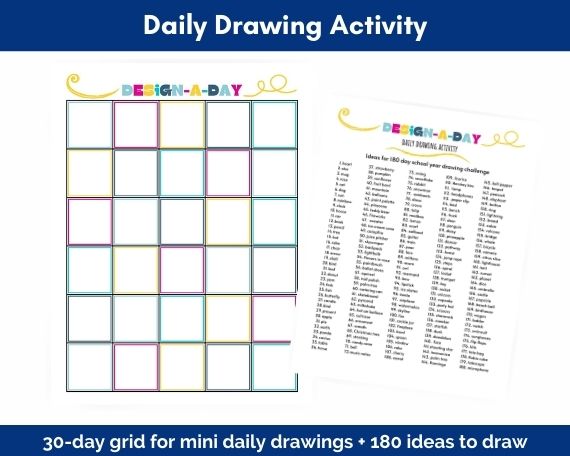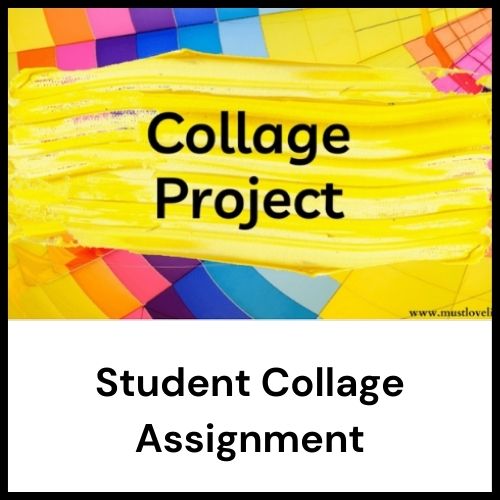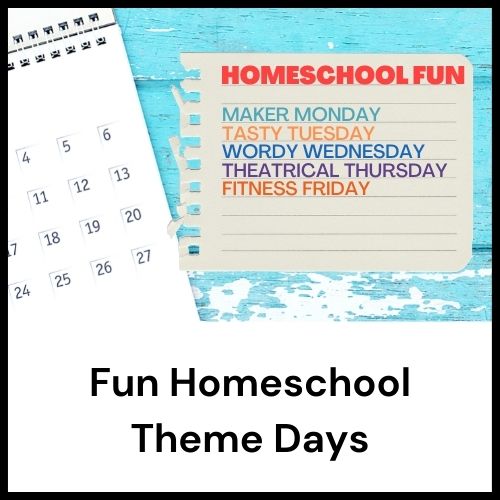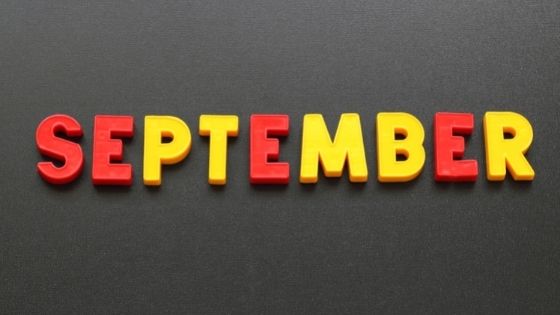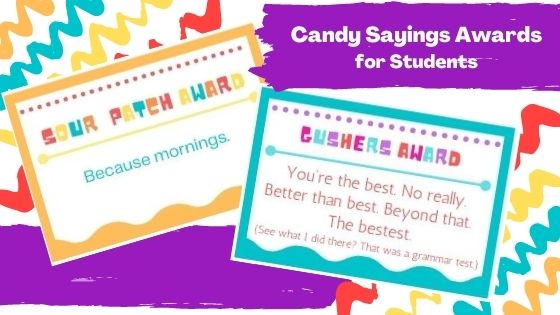Supplement Your Homeschool Curriculum with Fun Learning Activities
Add fun to your homeschool year with supplemental learning activities your middle and high schoolers will love.
No matter what homeschool curriculum you’re using, it is impossible to cover everything you’d like to teach your child. It’s a big, wide world out there, and you never know what will spark your child’s excitement or interest.
One way to expose your kids to a selection of ideas, information, and inspiring people is to supplement your curriculum with fun learning activities.
This list of ideas is intended to give you a starting point for thinking about what kinds of learning your child might like to explore. As teens seek to become more independent, offering choices in how they demonstrate their learning will give them ownership over their education. Additionally, exposing them to a variety of interesting people and ideas provides them with the opportunity to discover a passion and learn more about themselves.


Ways to Add Fun Learning Activities to Your Homeschool
There are a number of ways to supplement your homeschool curriculum with fun learning activities. I’ll share three of my favorite methods to add unique learning opportunities, and then we’ll get into more specific areas to consider adding supplemental activities to your homeschool routine.
- Daily, Weekly, or Monthly Recurring Activities
- Fun Holidays
- Themes and Hashtags
- Arts and Crafts
- Challenges
- Field Trips
- Games
- Life Skills
- Movies and Documentaries
- Music
- Podcasts and Audiobooks
- Project Based Learning

Designate Daily, Weekly, or Monthly Fun Activities
My favorite way to incorporate fun learning is to choose a topic and add a weekly or monthly activity related to that topic. For example, choose a country of the month, or famous birthday of the month. Even a daily dose can be fun if it’s something small, like “This Day in History” or a daily art prompt.
Fun Daily Homeschool Activities
- journal prompts
- art prompts
- photo prompts
- 1-minute daily video challenge
- fitness challenge (stretching, dance party, plank hold, jumping jacks)
- This Day in History
- famous birthday
- word of the day
- quote of the day
- devotional or scripture reading
- joke of the day
Fun Weekly Homeschool Activities
All of the daily fun ideas could be used on a weekly basis, plus any of the ideas listed below could fit into a weekly homeschool routine.
- song or music video
- podcast episode
- brainteaser, puzzle, or riddle
- show-and/or-tell (favorite moment of the week, something they learned, book or movie recommendation)
- interesting people and places
- how things work
Fun Monthly Homeschool Activities
The possibilities are just about endless, but I’ve provided a list below to offer a variety of ideas you could incorporate into your homeschool on a monthly basis.
- artist of the month
- athlete of the month
- author of the month
- composer of the month
- inventor of the month
- scientist of the month
- occupation of the month
- animal of the month
- country of the month
- cuisine of the month
- flower of the month
- collection of good advice
- well known passages of literature
- famous poems to memorize
Read: How to Create a Sustainable Homeschool Routine

Incorporate Fun Holidays
Another way to include bits of supplemental learning is to incorporate fun “holidays,” like National Ice Cream Day or World Art Day. A quick video about how ice cream is made or the most famous paintings from the past 100 years can be an engaging way to learn something outside your regular curriculum.
For detailed suggestions, visit my homeschool resources page. You’ll find mini-unit study ideas for each month of the year based on that month’s fun holidays.
Use Themes and Hashtags
Alliterative themes and hashtags can be a great way to add an element of fun to your homeschool, and you can choose the frequency you use them to suit the time you have available for additional activities.
I’ll list a few examples of themes for each day of the week to get your wheels turning. For more ideas, click the links below to see a huge list of themes for each day.
Some themes are better suited to daily, weekly, monthly, or occasional use—you get to decide!


- Maker Monday
- Money Monday
- Monday Motivation
- Movie Monday
- Mental Math Monday
- Tasty Tuesday
- Top Ten Tuesday
- Trivia Tuesday
- Try It Tuesday
- Tour the World Tuesday
- Who Was Wednesday
- Wellness Wednesday
- I Wonder Wednesday
- Watch It Wednesday
- Watercolor Wednesday
- Theater Thursday
- Theology Thursday
- Then and Now Thursday
- Think About It Thursday
- This or That Thursday
- Fact or Fiction Friday
- Fun Fact Friday
- Famous Failure Friday
- Fearless Feats Friday
- Fun and Games Friday
Themes and hashtags to incorporate into your fun homeschool activities daily, weekly, monthly, or occasionally
Read: How to Plan a Homeschool Theme Day
Specific Areas to Add Fun Learning Activities
The following categories can provide your student opportunities to explore a variety of learning outside of the core subject areas.
Arts and Crafts
Even if you’re not a crafty person yourself, you can include art activities through a variety of easily accessible resources. Here are a few ways to think about adding arts and crafts to your homeschool this year.
- choose a different type of art to try each month (e.g. yarn art, chalk pastels, watercolor, etc.)
- work through a YouTube tutorial playlist (How to Draw Basic Cartoon Characters, How to Draw 1-Point Perspective, Creative Lettering)
- include art projects alongside history and social studies (US History Projects, World History Projects)
Read: 99 Fun Paper Activities for Kids
Challenges
Encourage your kids to try something new by making it a challenge. Here are a few ideas to get you started.
Study Skills Challenge
For kids who need to experiment with learning styles, challenge them to spend four weeks trying specific methods and paying attention to what works for them to retain and understand information. This article from the University of St. Augustine has a simple explanation of some effective study skill methods.
Ideas to Try:
- take notes from text, highlighting and underlining, organize notes, then review
- quiz yourself on information learned (flash cards, Quizlet, Quizizz)
- take notes from video or audio information, organize notes, and review
- restate the main ideas from a chapter or video in your own words: written or oral (to another person or just record yourself and listen back to it)
30-Day Challenge
Get your kids moving with a 30-day physical challenge like a pushup challenge or jumping jack challenge.
Any student can benefit from a 30-day journaling challenge, either with prompts or just 5 minutes of free writing.
For kids that have a specific interest, find a challenge to encourage them to learn in that area. This might be a photo challenge for students interested in photography, a challenge to write every day for a student who wants to write a book (try NaNoWriMo in November), or to do a challenging brainteaser every day for 30 days.



Field Trips
Field trips are a wonderful way for your kids to learn without even knowing they’re learning. Here are a few ways to use field trips for fun learning, even in middle and high school.
- visit places to accompany your current study of history, geography, science, art, or music
- career exploration: introduce your student to a variety of jobs and business categories
- get outside and explore the natural world
- expose students to ideas, people, and experiences they don’t encounter in their daily life (performances: art, music, theater, dance; lectures: philosophy, science, technology; people and places: travel, architecture, local festivals)
A few ways to find field trip ideas:
- local (city) or state homeschooling groups: check websites and Facebook groups
- city event websites
- Facebook events in your area
- Google search: field trips in “YOUR CITY OR STATE”
- Google search: high school career fair “YOUR CITY”
- search local college and university website events
- Google search: factory tour “YOUR CITY OR STATE”
Games
Another way to add fun learning is through games that teach while you play. A quick Google search will turn up games related everything from math facts to medieval history.
Take advantage of games to cement learning on a topic, but also to teach strategy, creativity, and sportsmanship.
Your local library is a wonderful resource for board games. Checking out a game from the library is a great way to try before you buy!
One way to get started with game playing is to choose one day a month as game day and let your kids participate in choosing the game.
Read: 25 Fun & Educational Card Games for Families
Read: World History Board Games for Homeschoolers
Read: 50 Daily Online Games for Students
Life Skills
Not all valuable learning in your homeschool is academic. Learning skills to prepare your students for managing their adult lives is essential. The term “life skills” can encompass a wide range of learning, from household chores to communication skills and many more.
If you have a child who doesn’t love academic learning, try adding some life skill learning. You may find that they discover an area of interest that can build confidence and perhaps even open the door to future career paths.
Areas of life skills to consider:
- time management (using a calendar or planner, planning an event, creating a timeline for a dinner party)
- vehicle maintenance
- home maintenance
- meal planning and preparation
- financial skills (online banking, creating a budget, filing taxes)
- communication skills (small talk, email communication, presentations)
Read: 140 Essential Life Skills to Prepare Your Teen for Adulthood
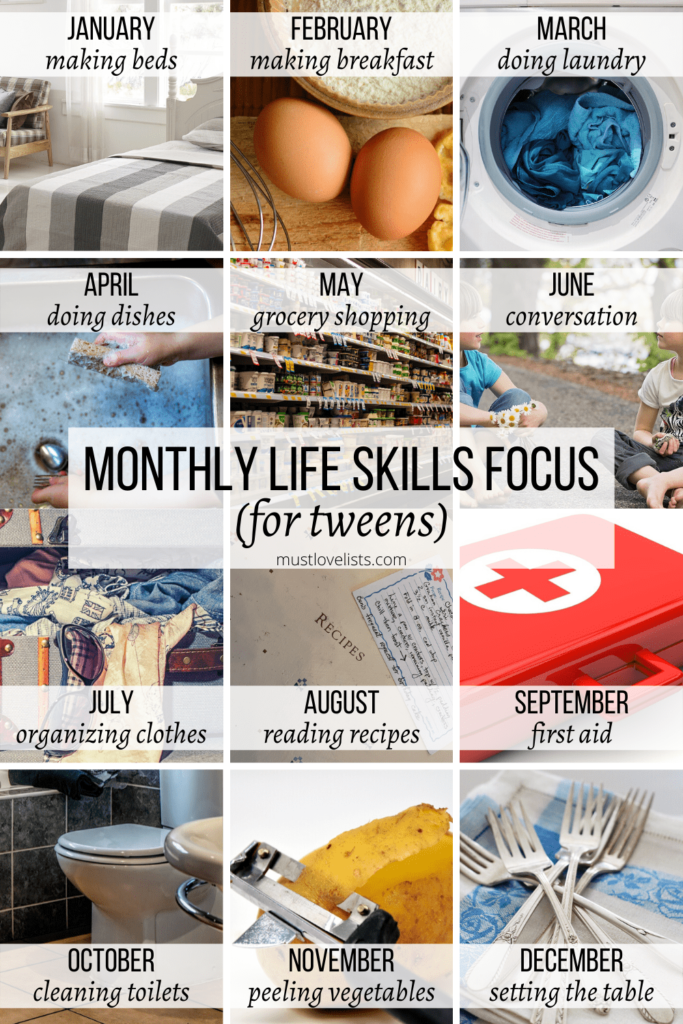

Movies and Documentaries
Think about all the facts and figures you studied in high school and how many of those you remember now. Probably not a lot, right? Visual media in the form of movies or documentaries can be an effective way to retain information for kids who struggle to remember what they read.
Movies and documentaries can be used in so many ways to enhance learning—here are just a few:
- learn about historical events, people, or settings
- experience varied cultures
- be inspired by interesting or creative people
- view parts of the natural world you would not otherwise see
Read: 36 Documentaries to Use in Your Homeschool
Read: 24 Documentaries to Watch with Your Kids
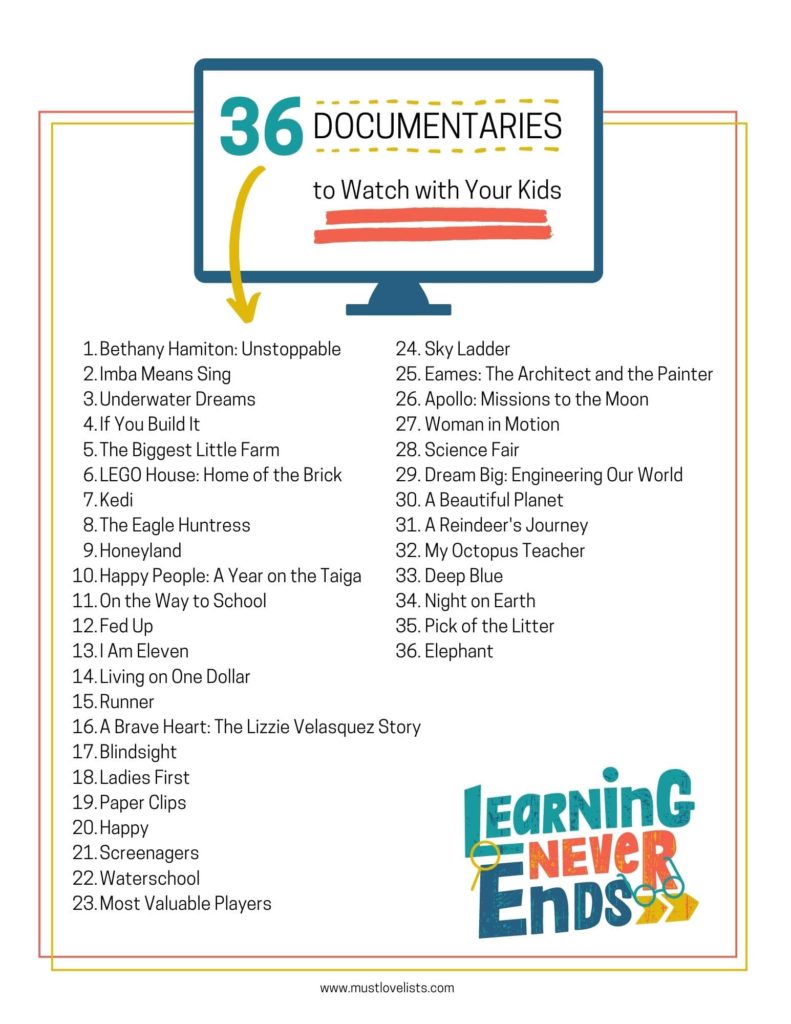

Music
My kids have experimented with piano and guitar lessons, but to my dismay, none of them have stuck with it. Although there are times we do a more formal music curriculum, I want to include music in my kids’ life on a regular basis.
Here are a few ways to add fun learning experiences through music:
- Music Monday: listen to a piece of music, exploring a variety of genres and time periods
- celebrate fun music holidays: Classical Music Month in September, Jazz Appreciation Month in April, International Drum Month in May, and so many more
- listen to music from the region or time period you’re studying in your history or language arts curriculum
- turn on music while you have lunch
Podcasts and Audiobooks
Whatever you’re studying, there’s a podcast for that! Your student may learn very well with audio inputs, and for kids who have very specific interests, they may be able to do a deep dive into a topic through the teaching of an expert.
Most podcast players do not have great search capability, so the best way to find podcasts is to use a search engine like Google. For instance, search “17th century women podcast” or “space technology podcast.” You’ll have much better luck with a Google search that can search show notes to pull up individual episodes or entire podcasts. You can even search the name of a person, like “Elizabeth Blackwell podcast.” Then go to your podcast player of choice, search for the name of the podcast and subscribe, or find the individual episode and download it.
Ideas to add podcasts into your regular routine:
- search for podcasts to supplement your history, science, or literature curriculum
- This Day in History, This Day in History Class, or On This Day short history podcasts
- short devotional podcasts: The Bible Recap, Unlocked: Daily Devotions for Teens, or Our Daily Bread
- search for podcasts related to a topic your teen is interested in (you’ll find podcasts on woodworking, rock climbing, gymnastics, video games, and anything else your kids are into)
- listen to a podcast while you eat lunch
- turn on a podcast while driving
- include a podcast in your family learning time
Read: Big List of Podcasts for Homeschool Moms
Projects
If your student likes hands-on learning, make it a priority to include project-based learning activities in your homeschool.
Ideas for using projects to engage your student:
- build something (crafts, models, dioramas, displays, collage)
- allow your student to use technology to demonstrate learning (timelines, videos, slideshows, apps, online games, digital scrapbook)
- experiment with oral communication (speeches, debates, songwriting, puppet show)
One resource I love for project ideas is John Spencer. Check out his YouTube channel for maker challenges, writing prompts, and video prompts for creative challenges.
How to Make Learning Fun This Year
I hope you’re inspired to choose a few ideas from this list to engage your middle school or high school student this year.
Some of these suggestions are easy to add on to your regular routine, like a Music Monday or occasional field trips.
For activities that are a little more involved, like projects, challenges or unit studies, try substituting one of these for a portion of your regular curriculum. No matter what curriculum you’re using, your children will have gaps in their learning. We all do.
The great thing is that we get to continue learning throughout our lives. So let go of the insistence that you must do every single chapter, assignment, or test in your purchased curriculum. Offer your kids a project choice instead of a test. Listen to a podcast about a topic instead of reading the assigned chapter. Let your writer take the month of November to participate fully in NaNoWriMo and skip math, science, and history work.
As homeschoolers, we have the opportunity to allow, and encourage, our kids to explore options, discover how they learn best, and what they love to learn about.
Let’s make learning fun this year!





Join my mailing list to receive updates when new printable resources are added to the library, plus tips and encouragement for your organized homeschool journey.



